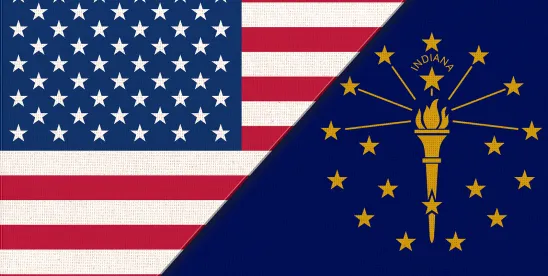Executive Summary:
On July 10, 2025, Indiana Medicaid issued guidance to providers of attendant care and structured family caregiver services requiring providers to pass through a specific percentage of their Medicaid reimbursement to direct caregivers. Reminiscent of the 80/20 rule proposed and ultimately finalized by CMS under the Biden administration, this new guidance from Indiana’s Family & Social Services Administration (FSSA), Office of Medicaid Policy and Planning requires providers to account for how Medicaid revenues are passed through to those providing the frontline care services. This new requirement is effective as of July 1, 2025, and impacted provider agencies are expected to submit a signed attestation of compliance no later than July 24, 2025.
Background:
In March 2024, the Indiana General Assembly passed House Enrolled Act (HEA) 1120. Amongst many other provisions, Section 63 of HEA 1120 required FSSA to impose new requirements on how attendant care and structured family caregiving providers utilize Medicaid funds:
Not later than December 31, 2024, the office of the secretary of family and social services shall prepare and present to the budget committee a policy that shall be implemented to set a required minimum percentage of the reimbursement for personal care services, including structured family caregiving and attendant care, under the home- and community-based services waivers that must be paid to the individual providing the direct service.1
Although HEA 1120 does not require a set percentage, the minimum percentage concept likely derives from the 80/20 rule published by the Biden administration and set to be implemented in the coming years.
Facing HEA 1120’s December 31 deadline, the FSSA issued a letter just ahead of the December 17, 2024, meeting of the state’s budget committee. Although the FSSA policy was listed on the committee’s meeting agenda, the minutes from the meeting do not appear to reflect any discussion of the topic, and neither the FSSA nor the budget committee issued any further guidance between December 2024 and the July 10 bulletin. Consequently, little is known about the basis for the 70/30 percentage or FSSA’s development and analytical process regarding these new requirements.
Key Issues:
Applicability:
FSSA’s guidance informs providers that the new passthrough requirement is effective as of July 1, 2025, and affects provider agencies that receive payments through Indiana Medicaid 1915(c) waivers, grants, and other programs specifically identified in the bulletin.
Passthrough:
Providers of attendant care and structured family caregiving services must pass through a specific percentage of their reimbursement to direct caregivers. Providers are expected to maintain books and records supporting their compliance with these requirements and be prepared to face an FSSA audit. To complicate matters for providers, FSSA has provided only limited guidance regarding how providers are to calculate their compliance with these standards. Based on the language of the attestation, the following costs are to be included in the “passthrough” percentage:
Attendant Care Services (70% of Reimbursement Rate):
- Employee compensation, including: wages, hourly rate increases, benefits, shift differentials, overtime, hiring and retention bonuses;
- “Recruitment” expenses as defined by the Secretary of the FSSA;2 and
- Employee-related expenses (ERE), which include (without limitation):
- Mileage for traveling to beneficiaries (i.e., waiver members);
- Administrative and overhead costs (office functions);
- Training costs; and
- Supervision requirements for attendant care providers.
Structured Family Caregiving (60% of Reimbursement Rate):
- Employee compensation, including: wages, hourly rate increases, benefits, shift differentials, overtime, hiring and retention bonuses;
- “Recruitment” expenses;
- Caregiver coach and nurse supervision expenses of the caregiver, including training and transportation expenses; and
- Any incurred respite care costs.
Conclusion:
Providers affected by these new requirements should:
- Evaluate their internal compensation and accounting records to determine whether they presently meet FSSA’s passthrough standards, and should develop policies to promote compliance moving forward;
- Consult with legal counsel regarding how these requirements may impact their organization, given the lack of clarity provided by FSSA;
- Although FSSA does not indicate what the penalty would be for noncompliance, providers should be prepared to sign the compliance attestation by the July 24 deadline; and
- Track implementation of the federal 80/20 rule. If the 80/20 rule is not rescinded or modified prior to its own effective date(s), there are meaningful differences between the federal rule and the FSSA requirement that providers will need to account for
[1] HEA 1120 § 63.
[2] As of the date of this article, FSSA has not defined what constitutes a “recruitment” expense for either attendant care or structured family caregiving.






 />i
/>i
